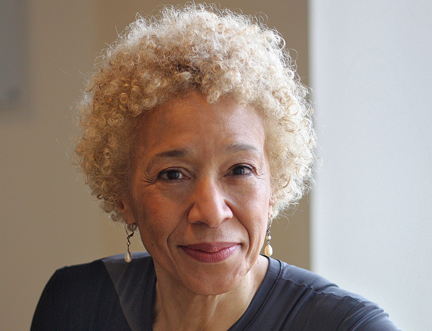The Ineradicable Color-Line: Danzy Senna’s “New People”Posted in Articles, Book/Video Reviews, Media Archive, Passing, United States on 2017-08-05 21:41Z by Steven |
The Ineradicable Color-Line: Danzy Senna’s “New People”
Los Angeles Review of Books
2017-08-01
Danzy Senna, New People, A Novel (New York: Riverhead, 2017)
IN LONDON IN JULY, at the dawn of a new century, W. E. B. Du Bois spoke in front the Pan-African Conference about the challenges of the era to come. “[T]he problem of the Twentieth Century,” he said, in a statement that would later appear in and come to define his epochal collection of essays, The Souls of Black Folk, “is the problem of the color-line.” The idea of describing American antiblack racial segregation by the simple, if not even deceptively charming, term color-line, had appeared two decades earlier in the title of Frederick Douglass’s 1881 essay, “The Color Line,” but it would come to be associated particularly with The Souls of Black Folk. So seductive was the phrase for Du Bois that he used it two more times to bookend an essay in the book, “Of the Dawn of Freedom,” but it was, of course, more than a memorable line. The color-line was as explicit as it was psychic, delineated in signs, denials, and public executions as much as it was in one’s choice of path, one’s footfalls, one’s bones and dreams. Racism is merely obvious when it becomes visible; its potential existence follows us, invisibly and phantasmally, when we’ve come to expect it…
…New People is a paean to the psychosocial complexities of being racially mixed, and, as a result, color-lines, passing, and double-consciousness are everywhere. The book follows Maria, who is on the cusp of marriage to her college love, Khalil. Obsessive and unreliable herself, she is doing her dissertation on Jonestown, a notorious historical example of fanaticism and deception. It is 1996 in Brooklyn, though much of it still feels atmospherically like 2017, only without social media. In her past, “Maria could honestly say she hated white people”; her mother, Gloria, astutely notes that Maria possesses “that particular rage of the light-skinned individual.” Khalil is Jewish and black with light skin; the first time Maria sees him, he looks “both entirely black and entirely white.” Like Maria, but with less self-torment, Khalil learns to embrace his mixed-race status shortly after beginning to date Maria. However, Maria does not feel any fire in her when she is with Khalil. (So cold is their romantic relationship, at least to her, that she wonders as she kisses him if she is really more attracted to women than Khalil.) The one who bewitches her is the black man who opens the book: an unnamed poet whose show she and Khalil have gone to see…
Read the entire review here.


